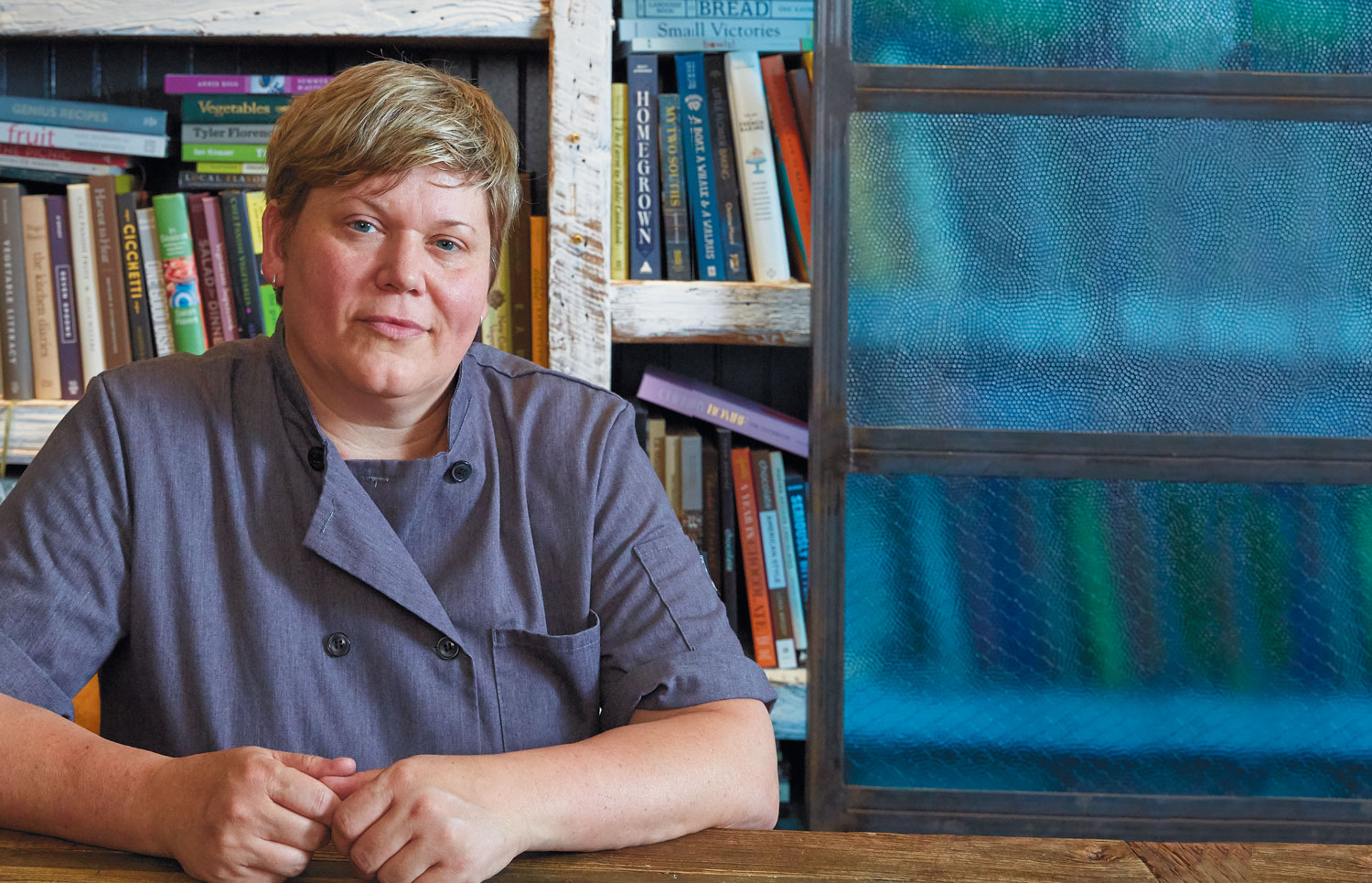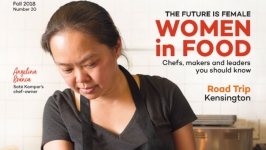Momma Turney: An Empire-Building Chef
“I always have something on the menu that’s going to pay my bills,” says Turney.
AN EMPIRE-BUILDING CHEF, on the eve of a major expansion
ASK CHEF MARCIE TURNEY to choose from among her five flourishing restaurants, a group that includes longtime hotspots Lolita and Barbuzzo, and she’ll demur. “It’s like, ‘Who’s your favorite kid?’” she says. In addition to the restaurants, Turney, together with partner Valerie Safran, owns gift shops Open House and Verde, Grocery gourmet market, Marcie Blaine Artisanal Chocolates, and He Said, She Said, a wholesale gift line. Recently, after 16 years in business, the couple has given their operation a name: Safran Turney Hospitality.
She may not play favorites, but Turney can be candid about sharing what she and her partner Valerie Safran have learned building their empire. Those hard-won lessons will serve the power couple well as they venture out of Center City for the first time, to the run-down blocks of East Passyunk Avenue just south of Pat’s and Geno’s, where they’ve purchased four buildings that will be the home of future projects.
They tackled a bigger revitalization challenge than this on 13th Street, after all. Back in 2002, that stretch of blocks was desolate. And though Turney and Safran don’t take credit for kickstarting the transformation of that area, there’s no denying that their combined culinary talent, business acumen and hustle changed the neighborhood dramatically and helped shape restaurant culture in Philadelphia.
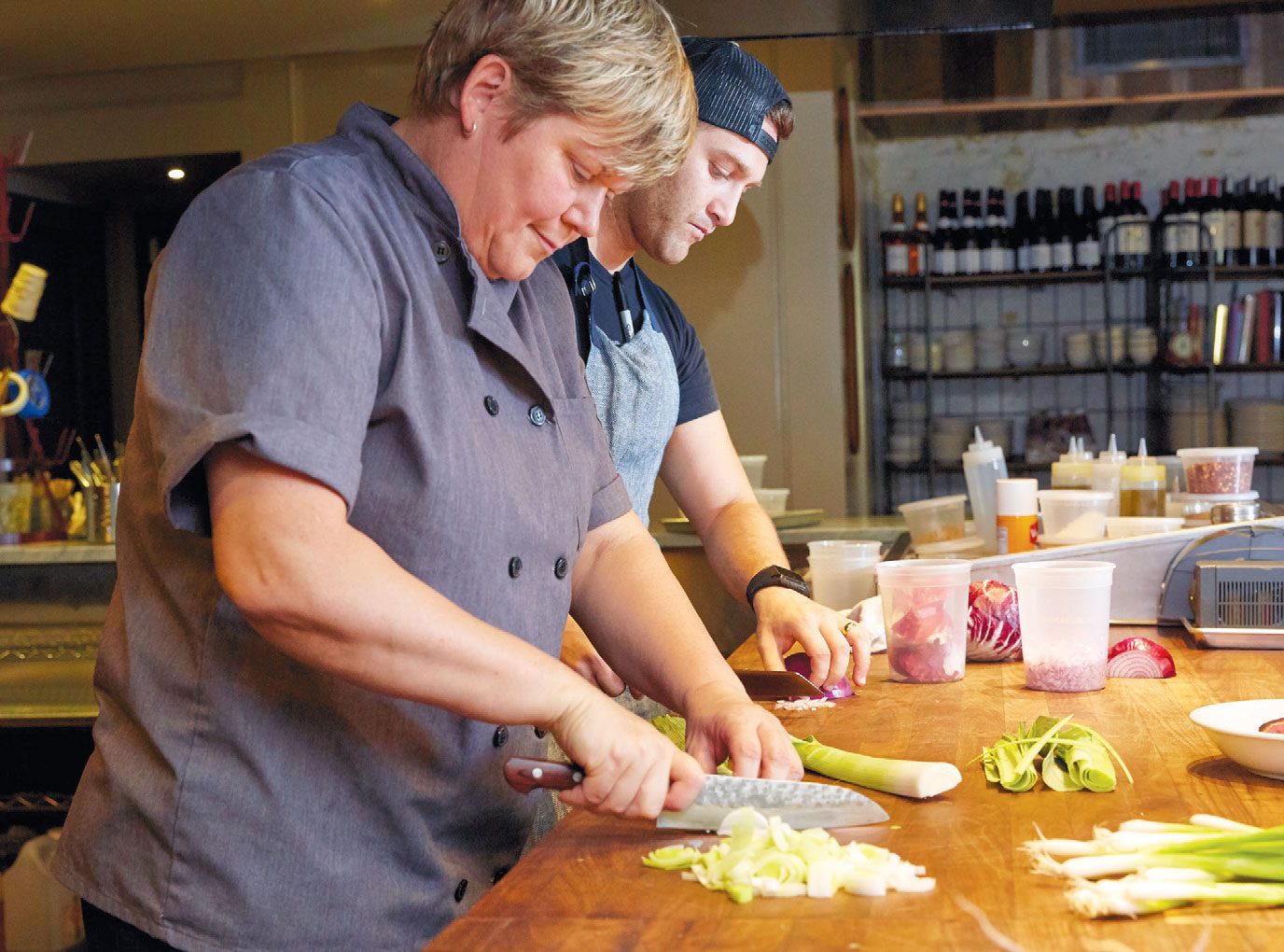 Turney working with her team.
Turney working with her team.
LESSON 1
You’re never really ready to open
As a seasoned opening chef at several spots over the years, Turney found that an ace staff was key to a strong start. “Every time I open, I pick my best people and I open solid, with the best crew,” she says. But even with extensive training and talented cooks at the ready, her two most recent openings ended in disaster.
“On our first night at Little Nonna’s it was beautiful out,” explains Turney, recalling the restaurant’s opening in 2013. Accordingly, Safran had packed the spacious outdoor patio behind the cozy Italian American spot full of eager diners, doubling the size of the restaurant from about 40 seats to more than 80.
But Turney hadn’t adequately planned for the extra volume, and the orders started piling up, leaving her and her cooks bewildered and in the weeds. “We went down like I’ve never gone down before,” says Turney. “My sous chef Caleb was like, ‘What happened?’ And I was like, ‘You got slapped by a meatball, son.’”
A couple of years later in 2015, the pre-opening night for friends and family at Bud & Marilyn’s again left Turney feeling embarrassed and concerned about negative word-of-mouth. In both instances, Turney closed the restaurants for a couple of days to regroup, even calling in a contractor to change the layout of the Little Nonna’s kitchen.
The lesson? “It’s all numbers and organization. And when you open something, you have to be prepared for the worst, which actually is the best, to just be crazy busy,” she says.
“There’s a saying on the block, ‘You always come back to momma,’” Turney laughs. “If you leave the right way, I will always take you back.”
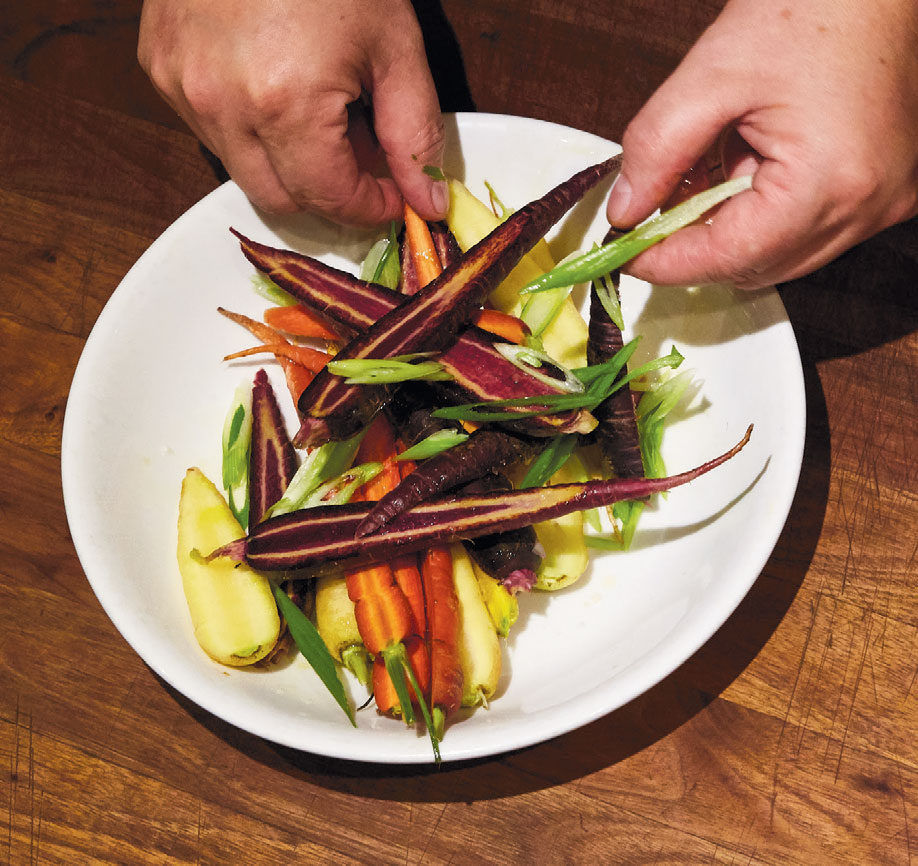 Multi-colored carrots for one of Turney's signature dishes.
Multi-colored carrots for one of Turney's signature dishes.
LESSON 2
Every menu needs a hook
If you’re familiar with Barbuzzo’s coveted salted caramel budino and its buzzy sibling, the frozen budino pop, you won’t be surprised that Turney considers wow-factor items to be an essential part of any new restaurant concept.
“I always have something on the menu that’s going to pay my bills,” says Turney, ever since Lolita, her first restaurant, which opened in 2004. The Mexican spot didn’t have a liquor license back then, and Safran hatched a plan to offer pitchers of margarita mixers in custom flavors like strawberry–Thai basil.
BYOT was a novel idea in the early 2000s, and Turney says it boosted sales so dramatically that the business took off. “No one brought wine. Old ladies would bring a little water bottle filled with tequila,” says Turney. “We knew we were onto something.”
A decade later, when it came time for recipe development for Bud & Marilyn’s, Turney surveyed the Philly scene to see which comfort food staples were lacking, and homed in on fried chicken and cheese curds. Even though the popular dishes require two cooks stationed at the pressure fryer, that decision has paid off handsomely ever since.
Turney and Safran have always made choices like these with an eye toward financial independence. “After Lolita, we never had another loan. We had no debt. And we would just take the money and roll it into the next project,” says Turney.
LESSON 3
A successful restaurant is a busy one, and that includes delivery
Walk down lively 13th Street between Chestnut and Locust any given evening, and it’s easy to see why Turney describes her style as busy and bustling. But, more important than the vibe, Turney says that without a steady stream of diners she and Safran simply could not afford the payroll and benefits necessary for their company to thrive. “If you have all of these people and you want to pay them well and you want to offer a 401k and all of this stuff, you have to have a busy restaurant,” she says.
One profitable trend she didn’t see coming? Delivery apps. “Caviar is now a huge thing in restaurants. Little Nonna’s Caviar is insane,” says Turney. While it doesn’t work for every restaurant—Barbuzzo’s wood-fired pizzas don’t travel well, for example—it can be a gold mine for others.
“It’s like you’re open for an extra day,” says Turney. In fact, when she and Safran envision the kitchen of a new project, they design a separate area just for the tickets and delivery bags.
LESSON 4
Hiring and investing in good people is critical
Turney and Safran pride themselves on cultivating stability. They offer health benefits and paid maternity leave for salaried workers, and recently added a 401k—“a big step for us,” says Turney.
Joelle Long, who manages Open House, was their very first employee, and she’s worked there since shortly after the shop opened in 2002. And those who venture off 13th Street for other gigs often return. “There’s a saying on the block, ‘You always come back to momma,’” Turney laughs. “If you leave the right way, I will always take you back.”
Case in point: The newly appointed culinary director, George Sabatino. The celebrated chef began his career as a line cook under Turney at Lolita, and he was chef de cuisine at Barbuzzo when it opened to critical acclaim. He went on to launch Stateside and Aldine restaurants, both of which earned rave reviews from critics and diners alike.
Part of Turney’s effort to retain staff long-term includes accommodating chefs’ requests for day shifts, especially when they have family responsibilities or addiction issues. Turney says she’s sensitive to the mental health struggles particular to the industry. “This job is hard, the hours, the adrenaline,” she says. “I just think there needs to be an understanding, because we all deal with it.”
When asked whether the sexual harassment stories that have surfaced recently have surprised her, Turney says, “Yeah, the level of it? For sure. That they’re saying those things?” She sees a marked difference from the alcohol-soaked restaurant culture of her youth to today’s workplace, where she expects a high level of professionalism from her managers. “This is a different day now,” she says.
Turney and Safran don’t have an HR department, so they handle employee issues themselves. An app called ShiftNote makes it easy for them to get daily reports from managers, but learning to delegate hasn’t always been easy. “Everyone knows that if something happens, we get called,” she says.
Ultimately, it’s all part of forming a solid foundation to build upon. “As we grow, I need awesome people, period,” Turney says. “That’s how this whole thing works.”
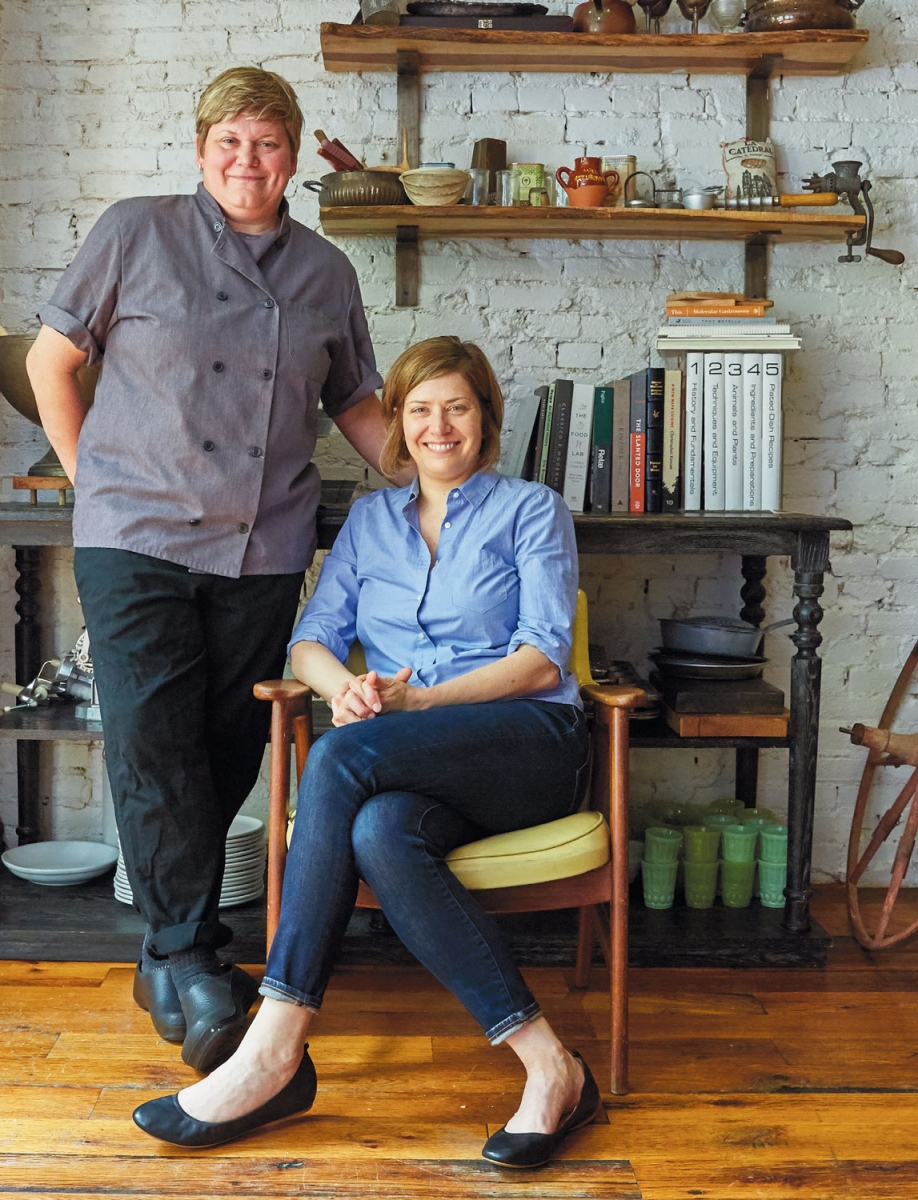
“I always say to Val that it doesn’t matter what our kids come at us with, I’ve literally seen it all.”
A new role as mentors
And what about that growth? Turney admits to being addicted to new businesses. However, what they’re really excited about is partnering with up-and-comers who show ownership potential.
“We’re gonna give them the real deal,”’ says Turney. “It’s the hardest thing you’ll ever do. And you either have it or you don’t have it,” she says. Another overarching theme in Turney and Safran’s entrepreneurial story is pragmatism and a lack of ego. When challenges arise, they’re more than willing to switch gears. For example, their Spanish restaurant, Jamonera, was once their Indian spot Bindi, and before that it was Grocery café, where the two took turns at the counter as baristas. Turney laughs about her short-lived gig as a floral designer at Verde in 2008, which they quickly revamped into a jewelry and chocolate shop when sales were less than stellar.
“We realized that flowers die,” says Turney. “We figured it out, and we made the change. And I feel like some people don’t know when to pull the plug.”
Planning for the future
While they’re at the top of their game professionally, the last year was a very difficult one for Turney and Safran on a personal level. Turney’s mother died unexpectedly, and Safran was diagnosed with melanoma that required two surgeries to restore her good health. “It makes you stop for a second and ask, ‘What’s so important?’” says Turney.
This soul-searching kick-started plans for adoption that they’d been mulling over for a while. “We were like, alright, if we want to have a family, we’re doing it now,” says Turney.
Trying to envision what life would look like as successful entrepreneurs with kids in the mix has been daunting. But they’re gradually improving their work-life balance.
Turney is banking that all of her wild restaurant world experience will help when it comes to raising children. “I always say to Val that it doesn’t matter what our kids come at us with— I’ve literally seen it all.”
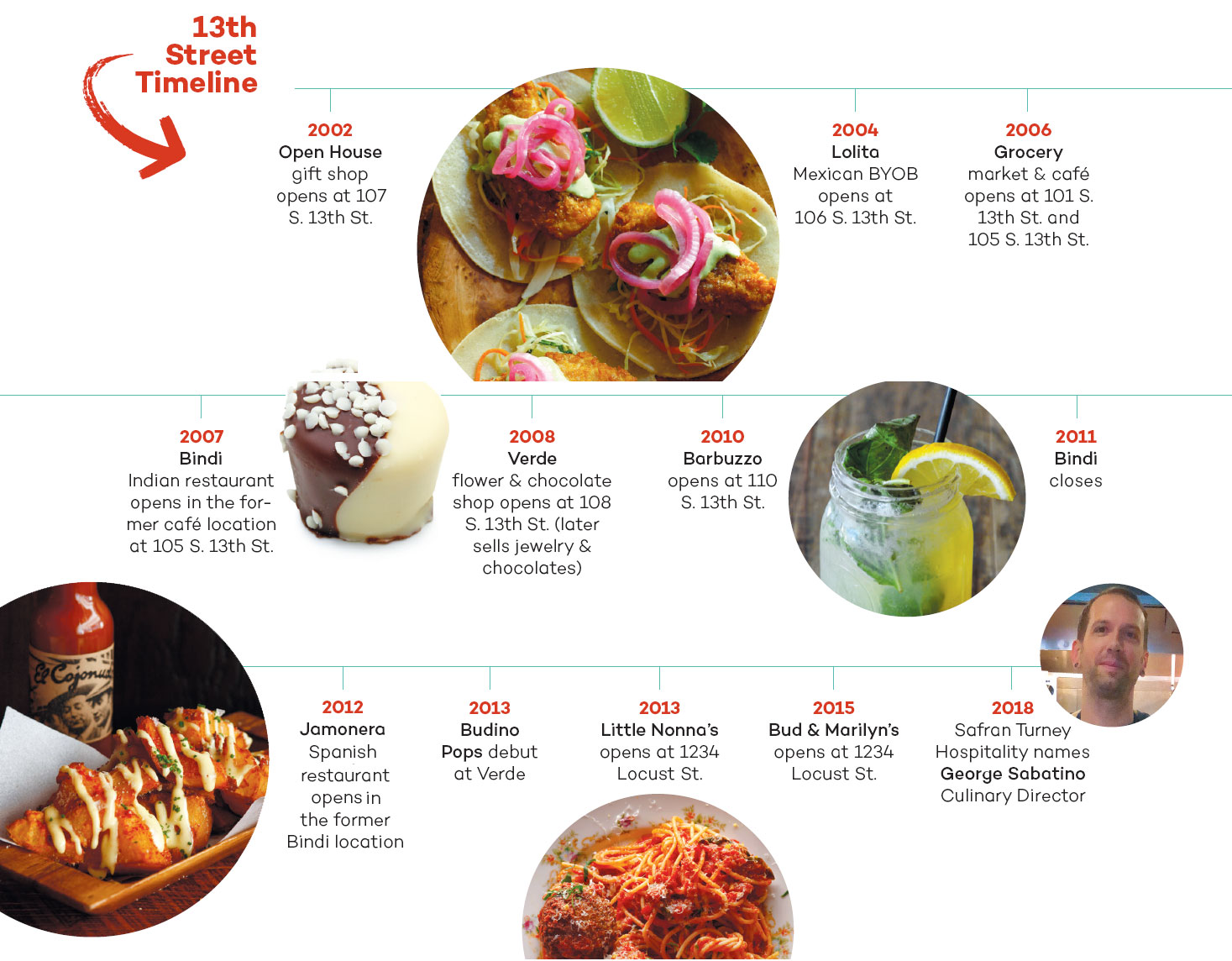 Lolita photo by Jason Varney; Chocolate photo by Elena Schweitzer - stock.adobe.com; Barbuzzo photo by Bondfire Media; Jamonera and Little Nonna's photo by Jason Varney
Lolita photo by Jason Varney; Chocolate photo by Elena Schweitzer - stock.adobe.com; Barbuzzo photo by Bondfire Media; Jamonera and Little Nonna's photo by Jason Varney


